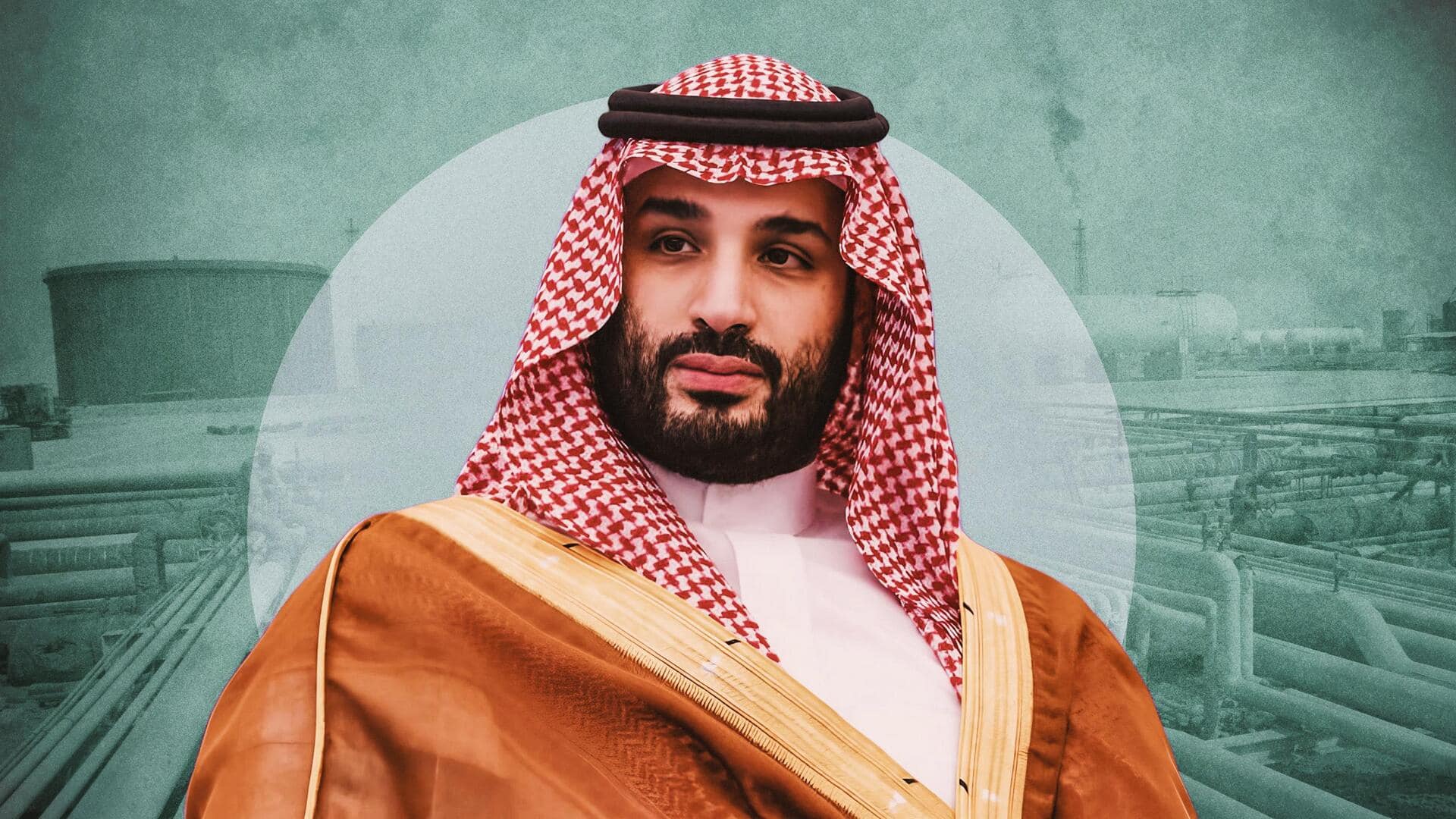
Saudi plans to 'hook' poor countries on oil, boost demand
What's the story
Saudi Arabia plans to boost demand for its oil in poor countries through an investment initiative—the Oil Demand Sustainability Programme (ODSP)—revealed an investigation by the Centre for Climate Reporting and Channel 4 News. Led by Crown Prince Mohammed bin Salman, it involves major Saudi organizations like the $700 billion Public Investment Fund, Aramco, and Sabic. It wants to "hook" countries on harmful products by investing in fossil fuel-powered vehicles in Africa and Asia as developed nations shift toward clean energy.
Context
Why does this story matter?
This comes ahead of the upcoming 2023 United Nations Climate Change Conference (COP28) in Dubai this week. The summit would focus on the initiatives to reduce or eliminate fossil fuels amid the current climate crisis, which has led to extreme weather events and resulted in loss of life and livelihoods, too. Notably, Saudi Arabia is also a signatory to the Paris Climate Agreement, requiring a rapid decrease in fossil fuel emissions and leaving most oil and gas reserves unexploited.
Details
ODSP's projects to increase fossil fuel usage
Saudi's ODSP is reportedly promoted as improving energy and transportation access in poorer countries and supporting sustainability. However, the Centre for Climate Reporting claimed it involves increasing oil and gas consumption using various tactics. These include distributing petrol and diesel-powered vehicles across Asia and Africa and partnering with a carmaker for affordable vehicles. It also aims to expedite commercial supersonic aviation development, oppose incentives for electric vehicles, and promote heavy fuel oil for power generation in Africa and South Asia.
Insights
Criticism of Saudi Arabia's actions
Meanwhile, the director of Power Shift Africa think-tank, Mohamed Adow, slammed the Saudi government's actions, comparing it to a "drug dealer" trying to get Africa "addicted to harmful products," per The Guardian. He reportedly argued that Africa should not follow the polluting path of other nations but should capitalize on its vast renewable energy potential for a true energy transition. Moreover, UN Secretary-General António Guterres called for international support to help developing countries transition to clean, sustainable energy pathways.
Facts
Saudi lobbying against climate policies
Reportedly, Saudi Arabia was also using its influence to lobby against international climate policies that would limit oil usage, thus protecting its economic interests. It has spent nearly $140 million since 2016 on lobbyists and others to influence United States (US) policy and public opinion on various issues, The New York Times reported, citing the US Department of Justice. This stance reflects the kingdom's broader strategy to maintain its oil-dependent economy despite global efforts to reduce reliance on fossil fuels.